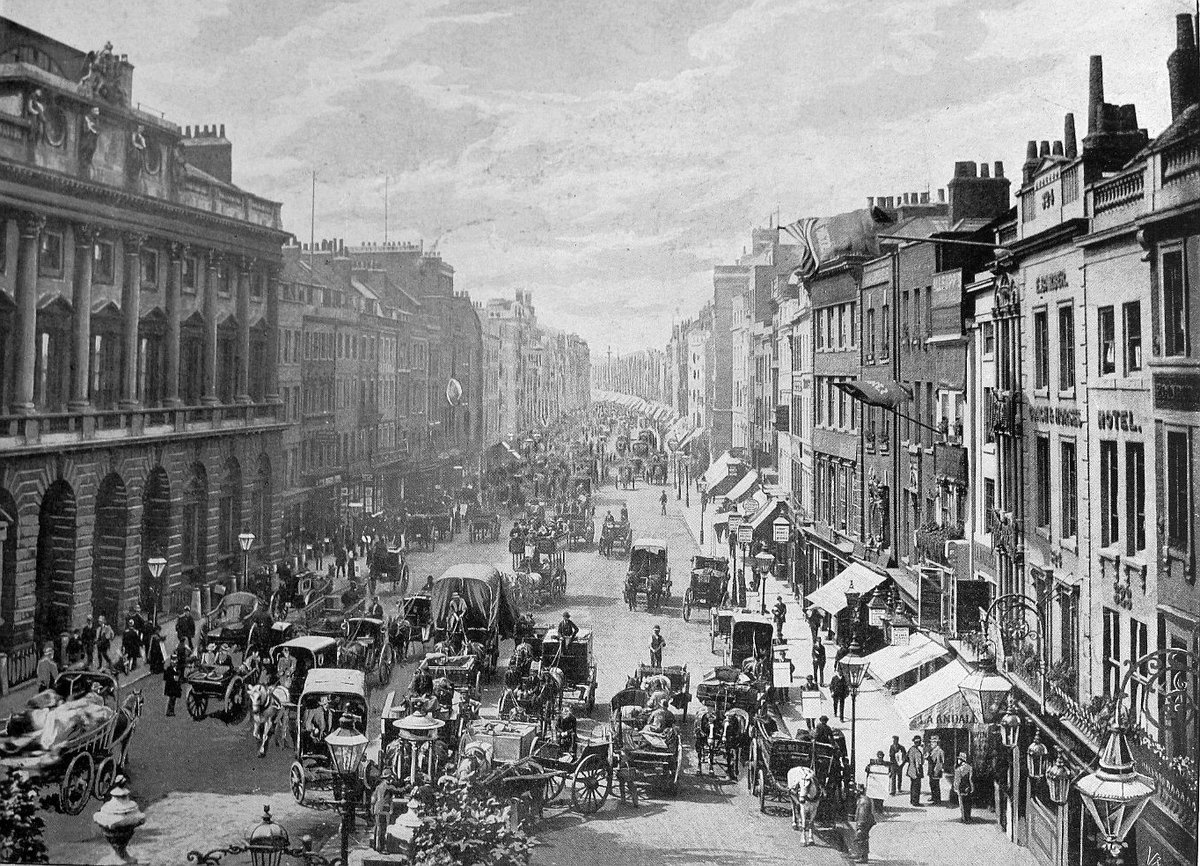My problem with city plans worldwide to "encourage using #PublicTransport" (i.e. make other options prohibitedly expensive) or "go back to the good old ways" is that it& #39;s missing out a fundamental element of said "good old ways": an extensive, cheap inner-city logistics industry.
Cities are making it very clear that personal transportation is EVIL. It is polluting (particles and noise), space consuming, and in pools and opinion surveys residents opt for fewer/no vehicles then vote for the candidate proposing fewer/no vehicles. So, clear line here.
Before, stores had errand boys, stations had porters, there were horse- or hand- carriages everywhere to take small parcels or large goods around. The arrival of the private automobile and the rise of salaries killed most of that service industry. That past can& #39;t be brought back.
So, the problem today is not that of moving around people (that, public transport does half-decently) but of their goods. The "fit peeps with small light bags" group isn& #39;t the "encumbered with heavy things" group (eg. weekly shopping and a small child, or a sprained ankle).
Until modern city planners solve the problem of private goods (from holiday suitcases to ordinary household purchases) getting easy, fast and cheap transportation, there will not be a rule of public transport at all times, and cities will fracture between rich and poor.
Take a good look at photos or films of cities pre-automobile. Look at the pedestrians. Almost no-one is carrying a big bag. No backpacks, no huge lady bags. At most shopping baskets (cf http://www.history-in-pictures.co.uk/store/index.php?_a=viewProd&productId=9285).">https://www.history-in-pictures.co.uk/store/ind...
And look at your town or city now. Everyone is constantly laden with a backpack, a messenger bag, a large purse. And that& #39;s before buying anything while out!
And am not even going to go into the time and effort it takes to use public rather than private transport. I would love it if City planners once actually published not average transit times, but range transit times. A person is not as fast with a pram and 2 kids as without.
So, how do we intersect a city devoid of personal transport solutions with a population that constantly moves around personal belongings and cared-for people, taking fully into account impairments (from prams to wheelchairs to canes to crutches to inability to carry something)?
So far, nothing is solving it. Mobility low-pollution solutions such as shared scooters and bikes untethered to parking docks became instantly so reviled by a majority that it utterly killed the way for shared carts. On-demand courriers are too expensive and don& #39;t earn enough.
Will financially forcing people towards public transport succeed at generating new models to move goods and less mobile people? Until these are common, is there a sizeable risk that resentment and frustration translate into mass public protests?
This was my TED talk, thank you.
This was my TED talk, thank you.

 Read on Twitter
Read on Twitter


